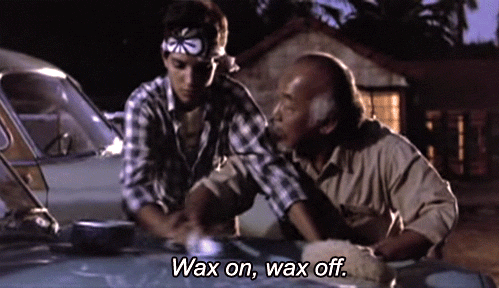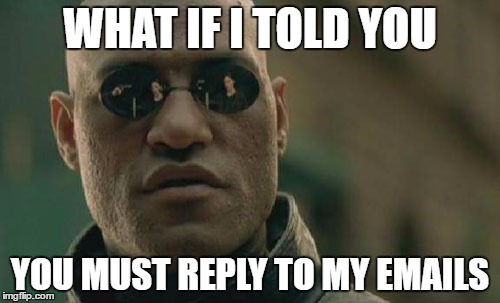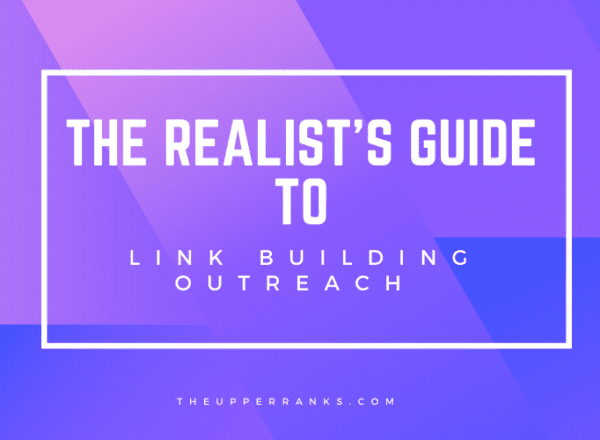- What Is Link Building Outreach (And Why It’s So Hard)
- The Outreach Mindset: Be Real, Not Robotic
- Link Building Outreach Basics: Start Here
- How to Find the Right Balance in Outreach Strategy
- The Most Important Skill in Outreach: People Skills
- My #1 Link Building Outreach Secret (Spoiler: It’s Not About You)
- Link Building Outreach Etiquette
- How to Help First (And Get the Link Later)
- Practical Applications for Link Building Outreach
- What Top Link Builders Can Teach You About Outreach
- Outreach Templates
- How to Track Your Outreach Without Losing Your Mind
- What’s a Good Success Rate for Link Outreach?
- Final Thoughts
Link building outreach is harder than creating content.
Many people don’t realize how much work goes into successfully building just one relevant link.
When I speak with prospective clients, I find many have good resources and good content, but they still struggle to earn backlinks.
That’s, partially, because good content doesn’t automatically get links and, partially because people treat outreach as an afterthought.
You don’t have to be a PR rockstar to get results from your link building outreach, but you do have to treat it as a separate skill set if you want to have success.
Whether you’re promoting a big piece of content or your website’s a great resource, none of that matters if people are ignoring your emails.
And it matters even less if you’re emailing the wrong people.
Be willing to forget what you know, unlearn everything, and focus on becoming good at outreach. And even when you become an outreach superstar, your success rate may not be where you want it to be.
I speak with other professional link builders all the time, and we all have one thing in common – none of us have a 100% response rate from the people we send outreach emails.
Realistically, you may send out 20 emails and get four links when you’re at the top of your game. Even more realistically, you may only get one link from those 20 emails.
Outreach takes practice, experience, and a willingness to set aside your pride and learn from your mistakes. It also takes a commitment to not beating yourself up over unanswered emails.
No one is perfect, and you can’t expect a high success rate from the get-go.
This guide focuses on the realistic side of white hat link building outreach, not the guru-ninja-rockstar nonsense (that doesn’t exist). I’ve broken down what actually works, step-by-step, with examples, mindset tips, and practical strategies.
Let’s get started.
What Is Link Building Outreach (And Why It’s So Hard)
Link building outreach is the process of contacting website owners, bloggers, and content creators to request backlinks to your content, product, or resource.
On paper, it sounds simple enough – find someone with a relevant site, ask nicely, and earn a link. But in practice, it’s one of the most frustrating and difficult parts of SEO. Even if your content is amazing, that doesn’t guarantee anyone will link to it (or even reply to your email).
Outreach requires persistence, strategy, and people skills. This guide is here to give you the realistic, no-fluff truth about what it takes to succeed.
The Outreach Mindset: Be Real, Not Robotic
The biggest mistake people make with outreach is treating it like a numbers game or a cold sales pitch. If your email feels like it was blasted out to 200 people, it’s going to be ignored.
Successful outreach starts with the right mindset: treat webmasters like people, not targets. Your job isn’t just to get a link – it’s to showcase why your content is genuinely worth sharing. That starts with empathy, relevance, and real communication.
Link Building Outreach Basics: Start Here
You’ve probably done research on link building outreach. You wanted to know more, so you landed on this post.
Just in case, here are basics I find many link builders forget:
- Have an email address— a domain email address for your company or website is best.
- Keep your message clear and concise; ask for a link.
- Always address the blogger or webmaster by name.
- Personalize your outreach, at least somewhat and remember you’re talking to a real person,
- Never spam or harass anyone– no one owes you anything, not even a link.
- Don’t try to manipulate or trick webmasters.
- Track every piece of outreach you send.
- Be persistent and don’t give up.
- Try to build a mutually beneficial relationship with everyone you send outreach — you’ll be able to help one another in the future.
How to Find the Right Balance in Outreach Strategy
If you don’t find a balance for your outreach, you’ll drive yourself crazy.
Everyone communicates differently, and everyone has a different amount of time and/or money they can devote to each part of the link building process.
Find a system that works for you.
You’ll have to decide between:
- Sending out fewer emails, but making them highly customized, personal, and human,
- Sending out more emails from a template, but making them much less personalized.
Customization takes a toll, but shooting out as many emails as you can in an hour takes a toll, too.
I recommend finding a balance between the two.

Remember there’s a human being on the other end of every email you send.
But, also remember that bloggers and webmasters don’t have time to read a super long email, especially when they don’t know you.
If your emails look like copy/pasted spam, you won’t get many responses, even if you send out hundreds.
If you spend 15-30 minutes on each email you send out, that time adds up quickly, and you may not get too many responses either.
Find your balance when you can. See what gets you the best response rate and test it constantly.
Find a system that works for you, because it probably won’t be the same system that works for me.
Think of it like health and fitness– if there was one obvious solution for a fit, healthy body, we’d all be looking like classical Greek statues. But everyone has to find their own health routine.
The same is true for link building. If there was one magic system, no one would ever need to hire a professional link building company.
It’s different for everyone.
The Most Important Skill in Outreach: People Skills
Several months ago, I wrote an article called ‘4 Skills You Need to Be a More Effective Link Builder.’
The first skill I mentioned was interpersonal communication. If you can get along with almost anyone, and you’re willing to find common ground with people, you’ll be good at outreach, once you commit to learning.
Here’s what I wrote:
“If you are working for an agency or doing freelance work, you will be building links for markets and industries that you don’t care about. You have to find real, common ground with other people, beyond the fact that you want a link and they can supply one.”
Get to know your target site’s webmaster or the blogger you want a link from. Try to figure out what makes them tick.
According to research, emails with personalized subject lines are much more likely to be opened.
Give them something to be interested in and make communicating with you a pleasant experience.
I recommend you read Dale Carnegie’s How to Win Friends and Influence People if you haven’t. It’s a great read (very educational, but entertaining, too– trust me).
Though you should buy it if you like it as much as I do.
Connect with your outreach targets. Tell them why you chose their site or their blog. Tell them what sets them apart from the dozens of other sites you prospected.
Then, think about sales. In your outreach emails, you’re selling the value of your content, your resource, or whatever you want a link to.
Explain why it’s worth their while, without being pushy or stepping over the line.

Last, keep your emails short. Be friendly, but don’t write an overwhelming amount of text. Again, you must practice this to become an expert and find a balance.
My #1 Link Building Outreach Secret (Spoiler: It’s Not About You)
Before we get to the secret, you need to understand why it’s important.
Think of this as your version of Daniel-san waxing Mr. Miyagi’s car before he learned the secrets to karate.

Do you ever have days when you’re overwhelmed, and it just feels like everyone around you wants something from you?
Your friends, your family, your colleagues, your neighbors, strangers on the street– they all want a piece of you.
Remembering that, put yourself in the average webmaster’s shoes and then walk a mile.
People they don’t even know are asking them for favors multiple times a day.
Even a webmaster who runs a simple Blogspot site about marathon training will find tons of clumsy, non-personalized outreach emails in their inbox every day.
Some will ask her to post an article about life insurance. After all, with all the intense training, you should probably have life insurance, right?
Some will want a link to their product page, or they’ll ask her to embed a terrible infographic about infographics.
They don’t even get her name right, or they don’t use her name in the first place, even though it’s clearly listed in her ‘about me’ section.
Ugh.
So, she’s understandably already suspicious when you contact her. No, she won’t help you move this weekend.
Now that you understand the webmaster mindset, are you ready to learn that killer secret to link building outreach?
Link Building Outreach Etiquette
Not quite!
Before I unleash the secret, we need to have a word about etiquette. You can’t use the secret without using proper etiquette.
Focus on the following with every email you send:
- Be Polite – Don’t make demands. Don’t be presumptuous. Don’t insult anyone. Think of yourself as a guest in their home.
- Be Professional – If you think it’s TMI, it’s TMI. Remember the last fun conversation you had with your boss, your grandmother or your child’s teacher? Have fun and be yourself, but carry yourself in that same way.
- Don’t Talk Down – People are smart. Webmasters are smart. Don’t talk down to them or condescend, even when you think you know more than they do.
- Don’t Beg or be Forceful – Just don’t do it. You can’t strong arm anyone over the internet. At least not until Apple releases the iPunch in 2025.
- Keep it Short – Say what you need to say and get out. Respect their time. Save your lengthy correspondence or love letters for someone else.
- Talk About Them – Don’t just talk about yourself. Find a popular post on their site and tell them why you liked it. Find one you like. Don’t lie.
- Don’t Be a Creep – This is self-explanatory. Don’t be a creep or a stalker.
- Accept Rejection Gracefully – You’re going to hear “no” sometimes. It is the webmaster’s right to reject you. It’s their site, after all. Accept it and move on.
Okay, you’re ready for that secret now.
How to Help First (And Get the Link Later)

The Secret: Help. Give.
Do something valuable for the webmaster, and do it before you ask for a link.
Why?
Because it’s human nature that when we receive something from someone, we feel compelled to give back and reciprocate something in return.
If you’ve read even a little bit about SEO, link building, or content marketing in the last two years, you’ve heard the term “relationship building” flung around a lot.
Like you’re just supposed to magically make friends with the owner of an authority site. Networking and making friends are well and good, but helping someone out in a genuine way is one of the best ways to make those connections. And get your link.
Don’t offer help while you’re asking for a link or after you ask for a link.
Find a legitimate way you can help that webmaster and do it before you ask for anything. Does it take extra time? Sure.
However, when was the last time anyone scored a good, relevant, no-effort link?
Link building is hard work. Period. Also, remember that link building outreach is a process. Unless you already have a relationship with a webmaster, it’s not just a one-and-done email.
The most important point to keep in mind is that outreach is an on-going process. You shouldn’t design a campaign and then contact your influencers, bloggers or journalists to seed it just when you need them to.
You wouldn’t ignore your personal contacts or friends all year until you needed them to help you with something and the same goes for influencer relations.
If you know you have a campaign coming up that will involve targeting a certain niche of people, you should be building those relationships before the campaign is off the ground and while it is still just an idea.
So yeah, help people before you ask for anything.
Practical Applications for Link Building Outreach
Now you might ask “How do I help them, David?”
That’s a good question. The secret’s no good if you can’t apply it correctly.
I’ve put together a few suggestions. Every website is different, every business is different, and every industry is different– but this should give you a good starting point.
Broken Links and Site Issues – No one likes having a broken website. Finding broken links and site issues is one of the easiest ways you can help a webmaster. It’s not hard, either. You can use this Chrome Extension or run their site through a tool like URL Profiler. You can check for broken links, SEO errors, code errors or just anything that looks out of place. Not every site has errors, though, so sometimes you must move onto something more creative.
Logo or Banner Redesign – I got this one from Jon Cooper’s link building strategies post several years ago, and it works like a charm. If your target site is great, but needs to update their logo or even a banner, offer one up. If you’re a designer or have an in-house designer, go to town. If not, you can always try finding a designer on Fiverr.
“Let Me Know” – Many blog posts have a “let me know” or “if anyone knows” question in them. Essentially, the content creator couldn’t find an answer to their question and is looking for audience input. Offer them a good answer. You can always do a Google search for ‘(keyword) “let me know”’ or something similar if you can’t find any such opportunities from eyeballing a website.
Answer Questions – Similarly, many blog posts end with a question to the reader. This encourages comments. Answer the question through a comment, a tweet or even an email. If you answer in an email, it might spark a conversation.
Feedback and Conversation – Webmasters and bloggers are often creative people, and creative people love feedback on their work. Sometimes, they want that more than any code or broken link fix you could ever provide. If you have feedback, make sure it’s genuine and make sure it can lead into a conversation. Tell them why a certain piece of work is good and what it meant to you. Kind words are sometimes the best kind of help.
Social Shares – This one is easy. If you like something they wrote, share it on Twitter or Facebook. You’re helping them promote their content. It’s a great lead-in to a conversation, too. “Hey, (Webmaster), I just want to let you know that I enjoyed your blog post about (blog post title) and tweeted it out to my followers the other day. Keep up the great work”. Wait until they reply and then you can let them know about your resource or ask for their feedback.
Lend an Image – If you notice a target site has a severe lack of images, or uses bad stock photos, offer to give them a few of your own. If you take photos of your product, projects or service regularly, offer some images. If a blogger doesn’t have many images, offer them a few images from your own stock photo account or find great free stock photos for them. Try this list and this list of free stock photo sites.
Hacked Link Building – This one requires more work, but if you follow through, you’ll have a very grateful webmaster on your hand. Giuseppe Pastore wrote all about it here, but it entails finding sites inadvertently linking to hacked or spammy sites.
Add to a “How-To” Post – How-to posts are super popular, and for good reason. When prospecting for relevant links in your niche, you’ll naturally know something about the webmaster’s subject. If you can think of an item they left off of their how to or list post, write up an addition and send it over.
So, now you know the secret, and you know how to apply it. You’ll come up with your own ideas too, I’m sure.
What Top Link Builders Can Teach You About Outreach
To live a happy and productive life, you’re never done learning.
You can always get better at everything you do, including link building outreach.
There are dozens of great link building outreach guides on the web, and most will tell you to aim for the stars.
We’re being a little more realistic here. But when you get stuck in an outreach rut and get discouraged, I urge you to set aside time and do some reading.

When you learn from other successful link builders, you’ll feel refreshed, and you’ll be able to absorb some of their tactics into what you do, refine your process further, and experience a better success rate.
So, look at some outreach emails that get responses.
You’ll see how the pros write their outreach, and then you can re-focus on your own emails.
Outreach Templates
Once you send more outreach emails, you’ll probably want to use a template.
But wait… didn’t I just tell you to personalize your emails?
Yes. But it helps to have a template to start. You can take the time to personalize your template, and of course, you must start from scratch with some emails.
But always have a few basic templates to fall back on.
Using a template doesn’t mean rapid-fire copy and paste spam sessions.
It just means you remember to say everything you need to say in a clear, concise manner.
I’m sure you’ve sent out an email, only to realize you left out something important, right?
Realizing you forgot something is a terrible feeling.

Using a template will help you remember everything you need to cover, and it will save time.
Always test and refine your templates and remember you’re talking to a real person.
Everyone is different, so treat your outreach accordingly. The same copied email will only get you so far.
Let every blogger and webmaster know why you like their website and let them see you put some thought into your email.
How to Track Your Outreach Without Losing Your Mind
You need to track every piece of outreach you send out.
If you don’t keep on top of it, you’ll feel overwhelmed, you won’t remember who you last spoke with or when it’s time to follow up.
Worse yet, you could make the mistake of sending the same initial email to the same person twice.
You’ll be embarrassed, and you can write that person off– you’ll never get a link from them if they think they weren’t worth remembering.
I don’t enjoy feeling embarrassed and losing potential relationships, so I recommend starting with a simple Google sheet. It’s free and easy.
Be sure to include:
- Date of contact
- The target website
- The webmaster or blogger’s contact Info
- Action Taken (email, phone call, filling out a web form, a social media message, etc.)
- Linking Page (if you successfully build a link)
You can also include Domain Authority, PageRank, how long a site has been active, and other metrics in your sheet to help you prioritize.
I made a handy tracking sheet for you here, and you can copy it and customize it to your liking.
I divided it into four parts:
- Live Links – links you’ve successfully built
- In Communication – when you’re still conversing with a webmaster, but have yet to build a link
- Attempting to Reach – when you’ve yet to get a response
- Research – sites you’ve found, but haven’t yet contacted
Tracking is crucial and is often overlooked by link builders when they’re just starting.
After you’ve developed a working system and are ready to scale up your outreach efforts, you may consider using a more sophisticated outreach link building tool.
What’s a Good Success Rate for Link Outreach?
You’ll also need to track your success rate.
Success can be measured in many ways.
If you spend 20 hours one week on outreach and get one link, your success rate is not very good.
If you send 20 emails in an hour and get a link out of it, that’s an excellent success rate.
Again, it’s about balance.
Here’s what will help boost your success rate:
- Send an email, instead of filling out a contact form.
- If it makes sense, call someone on the phone, instead of emailing.
- Get to know your target webmaster or blogger on social media before you approach them for a link when time permits.
- Help bloggers and webmasters before you ask for a link.
- Personalize your emails, but keep them short and to the point.
- When something works, learn from that success and make it a part of your outreach system.
- When something isn’t working, swallow your pride and try something different.
Realistically, you won’t be having a ton of success right out of the gate.
There are still times when I feel like I’m struggling with outreach, and I’ve been doing this for years.
You can’t force someone to respond to your email or link to your website.

You can only express your value, make human connections, and keep at it.
If you’re spending too much time on outreach and you’re not getting results, mix it up and try something different.
Don’t repeatedly bang your head against the wall.
And don’t give up. Try to increase your success rate, but realize there is no magic spell for outreach response.
Dozens of factors go into every link you build, and it’s complicated when everything’s said and done.
Just keep pushing ahead and keep learning.
And find a way to measure your success, whether it’s the number of responses you get or the number of links you build.
When you see your numbers go up month after month, you’ll know you’re getting better.
Final Thoughts
Link building outreach will never be easy.
It takes the mind of a salesperson, the intuition of a therapist, the friendliness of a neighbor, the determination of a prizefighter, and the shrewdness of a business owner.
It also really helps if you like people.
Because outreach is all about being good with people.
Realistically, you won’t get good at outreach overnight.
You’ll have to keep testing and refining, and you’ll never stop experimenting.
If you keep powering through and pushing forward, you’ll find the right balance for your link building outreach, and the links will start coming in.

Comments
This is one of my favorite blogs and as someone who’s been an SEO for a number of years, I find your unique style and info to be really helpful to me. Keep it up and may god bless you.
Regards
Harsh
Appreciate the kind words, Harsh 🙂
I’m totally with you and each point is written extremely clearly which describes everything about a great blogger. You are a brilliant man.
Regards
Anubhav
Thank you Sir!
Great info! I plan to link back to this in a future post for our clients because it’s just that helpful. (I’ll let you know when it goes live.) Thanks, too, for the additional reading suggestions. You’re like your own little Wikipedia, aren’t you. 🙂
Thanks so much, Tiffany and I suppose you can call me the Linkipedia 😉
Gold!
Link outreach is where I started focusing on more and more this year for our SEO. I never liked link outreach before because the time and energy required was a turn off for me, but I’m finding that it’s really about having a streamlined a system in place. You included a few things I didn’t know before so thanks for sharing David!
Outreach is from the harder link building tasks, so developing a sound system is definitely the way to go. It probably won’t be perfect in the beginning but as long as you have a foundation you can always improve it over time.
Best of luck!
This is most deep rich article on link building outreach, I like how you broke it down into what a realist would do if they had to do this on a regular basis. The corresponding articles are very helpful. You just made a new fan!
It’s an honor to have you on board, Ashmith 🙂
Excellent article! The more unpleasant the task, the less likely many people will actually do the work required for success. Thanks for breaking it down this way.
You’re welcome, Tobe!
Love the breakdown David. I do a bit of outreach but it never hurts to get better and read more useful tips!
Appreciate the work you did on this.
– Ashley
Glad you found the information useful, Ashley 🙂
Felt this post was very useful – thanks for the share you really covered a lot of content and provided a lot of links to other resources.
Glad you found it useful, Krista and thanks for stopping in!
Every time I think about link outreach, I look at my pages and see that there’s really nothing that anybody would want to link to. Oh well.
Hey Michael, Sounds like you need to start with creating a linkable asset!
Hey David,
Great article and thanks for the mention of my “Link Building: Quality Vs Quantity – When Less Is Definitely More” – it’s most certainly been proven more lately following the trial of some of the old school directories on my own site 😉
Have a great week ahead!
Cheers,
Joe
Appreciate that, Joe and always happy to share great content 🙂 Thanks for stopping in and taking the time to leave a comment!
Very helpful and ‘realist’ post 😉
Thanks, Tiffany!
Hi David,
I really enjoyed your article and I’m excited to get practicing!
I have a question for ya..
How do you decide who to email and ask for a link? For instance, I want to make an article about affidavits. What would you type into Google to find folks to ask?
I think the key topic in this article is to Track your outreach efforts using a Google sheet, which includes contact date, target website, webmaster or blogger contact, info action, and linking page. Prioritize live links, reaching out, and research sites. Use your outreach system effectively and try different approaches if necessary. Remember that success is not guaranteed, and you cannot force someone to reply or visit your website. Overall thank you for your information sharing.
Aww this article seems kinda comforting tho…coz I mean the struggle that comes with link building outreach is no joke and I won’t expound that any further.
Anyways, I am really glad to have stumbled upon this article, it’s really helpful and relatable. Thank you so much for sharing, and it all made sense, really.
Great article David. “Walk a Mile”….absolutely. It really helps to craft an outreach email that lets them know you understand what they do and value their time and effort.
Thank you James – it’s an honor to have you here!
Hi David,
SEOs (which don’t obey the practices you published over here) send automated emails and seriously, they look so funny, that recipients don’t delay in calling them out socially and publicize it. On a serious note, that’s a big threat to the reputation of Client as well as theirs (whatever they’ve in their Signatures).
Outreach will do nothing for those who don’t take it the right way. As you said the real thing – It is a relationship building, and it requires efforts 🙂
But thank you for your post. Your points are strong enough to move the needle in right direction.
Thanks
Really appreciate the vote of confidence, Sam and best of luck with your link outreach projects!
David,
Thank you for your post. I agree with your points.
It’s important to add value to prospects. We shouldn’t expect anything in return without adding any value.
Anything that we get without adding any value can is a bonus 🙂
Quick Question – how do you justify the time invested in personalized outreaching vs the cost?
Manual outreach is time consuming and in a time when client’s budget aren’t great – how do you manage?
Please let me know your thoughts
Thanks for your thoughtful comment, Boni!
You’re right, adding value first is key. If you get something without giving anything, it’s a nice bonus, but not a real strategy.
Great question about the time investment. Manual outreach takes time, but personalized emails usually convert better and build stronger relationships.
When budgets are tight, I focus on:
-Personalizing the top 10–20% of high-value prospects
-Using light templates with quick custom tweaks for others
-Tracking what works so we’re not wasting time
It’s all about finding the right balance. Appreciate you bringing this up!
Hello David
As a brand new link builder, I found this article quite helpful and informative. Very explanatory and easy to read. Great job, man!
It seems the article was published a few years ago, but I believe it is still very relevant. Thanks and I hope everything is going well in these crazy times!
Thank you Chad, I try to update it from time to time and believe it is all still relevant!